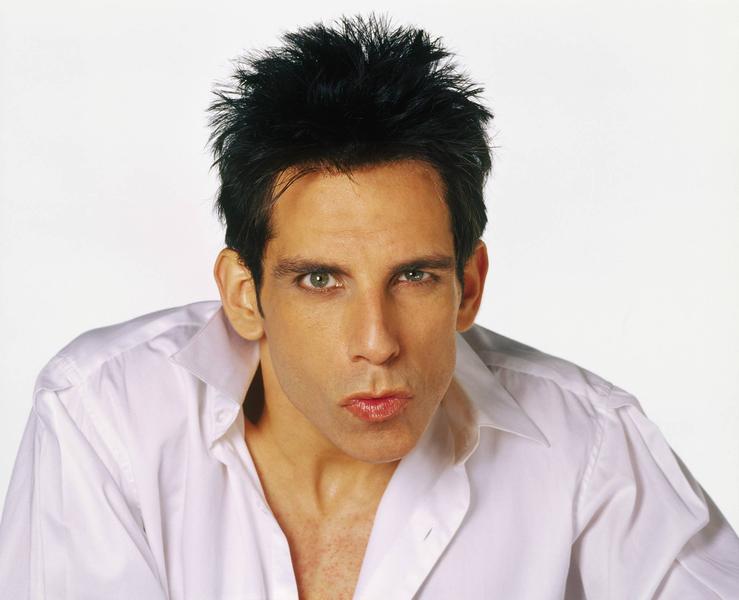A quick and easy way to spot a narcissist


A free daily email with the biggest news stories of the day – and the best features from TheWeek.com
You are now subscribed
Your newsletter sign-up was successful
How can you be fairly certain whether your self-absorbed friend is a narcissist? According to science, all you have do is ask them.
A new study published in the journal PLOS ONE found that simply asking, "Are you a narcissist?" was nearly as effective in diagnosing people as the longer, more time-consuming, traditional method, which involves a 40-question test — "hardly something you can administer on a first date to find out if you're getting mixed up with a charming louse before you accept a second date," said Jeffrey Kluger at Time.
Researchers used what they call the Single Item Narcissism Scale (SINS). They asked subjects: "To what extent do you agree with this statement: 'I am a narcissist.' (Note: The word 'narcissist' means egotistical, self-focused, and vain.)" and asked them to rate their feelings on a scale of 1 to 7, with 1 meaning "Not very true of me" and 7 meaning "Very true of me." The researchers found that the SINS is "significantly correlated with longer narcissism scales."
The Week
Escape your echo chamber. Get the facts behind the news, plus analysis from multiple perspectives.

Sign up for The Week's Free Newsletters
From our morning news briefing to a weekly Good News Newsletter, get the best of The Week delivered directly to your inbox.
From our morning news briefing to a weekly Good News Newsletter, get the best of The Week delivered directly to your inbox.
To cover all their bases, the researchers went further, testing other personality traits related to narcissism to see if they, too, lined up with what they found on the simple SINS test — and indeed, they did. Why, though, do narcissists so readily out themselves? Kluger offers some good insight:
The reason narcissists are so honest — a lot more honest than you'd be if someone asked you, say, "Are you a sociopath?" — is because they just don't think their narcissism is a problem, which is perfectly consistent with people who think so highly of themselves. [Time]
Many narcissists do, in fact, have many things to be proud about. "If you're trying to think of a group of people who are low in depression and anxiety, high in creativity and accomplishment, that's narcissists," psychologist Sara Konrath told Kluger. Still, as anyone who's spent some time with a true narcissist knows, this high confidence can do real damage to other people. At least, if you ask them first, you'll know what you're getting into.
A free daily email with the biggest news stories of the day – and the best features from TheWeek.com
Samantha Rollins is TheWeek.com's news editor. She has previously worked for The New York Times and TIME and is a graduate of Northwestern University's Medill School of Journalism.
-
 The Olympic timekeepers keeping the Games on track
The Olympic timekeepers keeping the Games on trackUnder the Radar Swiss watchmaking giant Omega has been at the finish line of every Olympic Games for nearly 100 years
-
 Will increasing tensions with Iran boil over into war?
Will increasing tensions with Iran boil over into war?Today’s Big Question President Donald Trump has recently been threatening the country
-
 Corruption: The spy sheikh and the president
Corruption: The spy sheikh and the presidentFeature Trump is at the center of another scandal
-
 Blue Origin launches Mars probes in NASA debut
Blue Origin launches Mars probes in NASA debutSpeed Read The New Glenn rocket is carrying small twin spacecraft toward Mars as part of NASA’s Escapade mission
-
 Dinosaurs were thriving before asteroid, study finds
Dinosaurs were thriving before asteroid, study findsSpeed Read The dinosaurs would not have gone extinct if not for the asteroid
-
 SpaceX breaks Starship losing streak in 10th test
SpaceX breaks Starship losing streak in 10th testspeed read The Starship rocket's test flight was largely successful, deploying eight dummy satellites during its hour in space
-
 Rabbits with 'horns' sighted across Colorado
Rabbits with 'horns' sighted across Coloradospeed read These creatures are infected with the 'mostly harmless' Shope papilloma virus
-
 Lithium shows promise in Alzheimer's study
Lithium shows promise in Alzheimer's studySpeed Read Potential new treatments could use small amounts of the common metal
-
 Scientists discover cause of massive sea star die-off
Scientists discover cause of massive sea star die-offSpeed Read A bacteria related to cholera has been found responsible for the deaths of more than 5 billion sea stars
-
 'Thriving' ecosystem found 30,000 feet undersea
'Thriving' ecosystem found 30,000 feet underseaSpeed Read Researchers discovered communities of creatures living in frigid, pitch-black waters under high pressure
-
 New York plans first nuclear plant in 36 years
New York plans first nuclear plant in 36 yearsSpeed Read The plant, to be constructed somewhere in upstate New York, will produce enough energy to power a million homes
